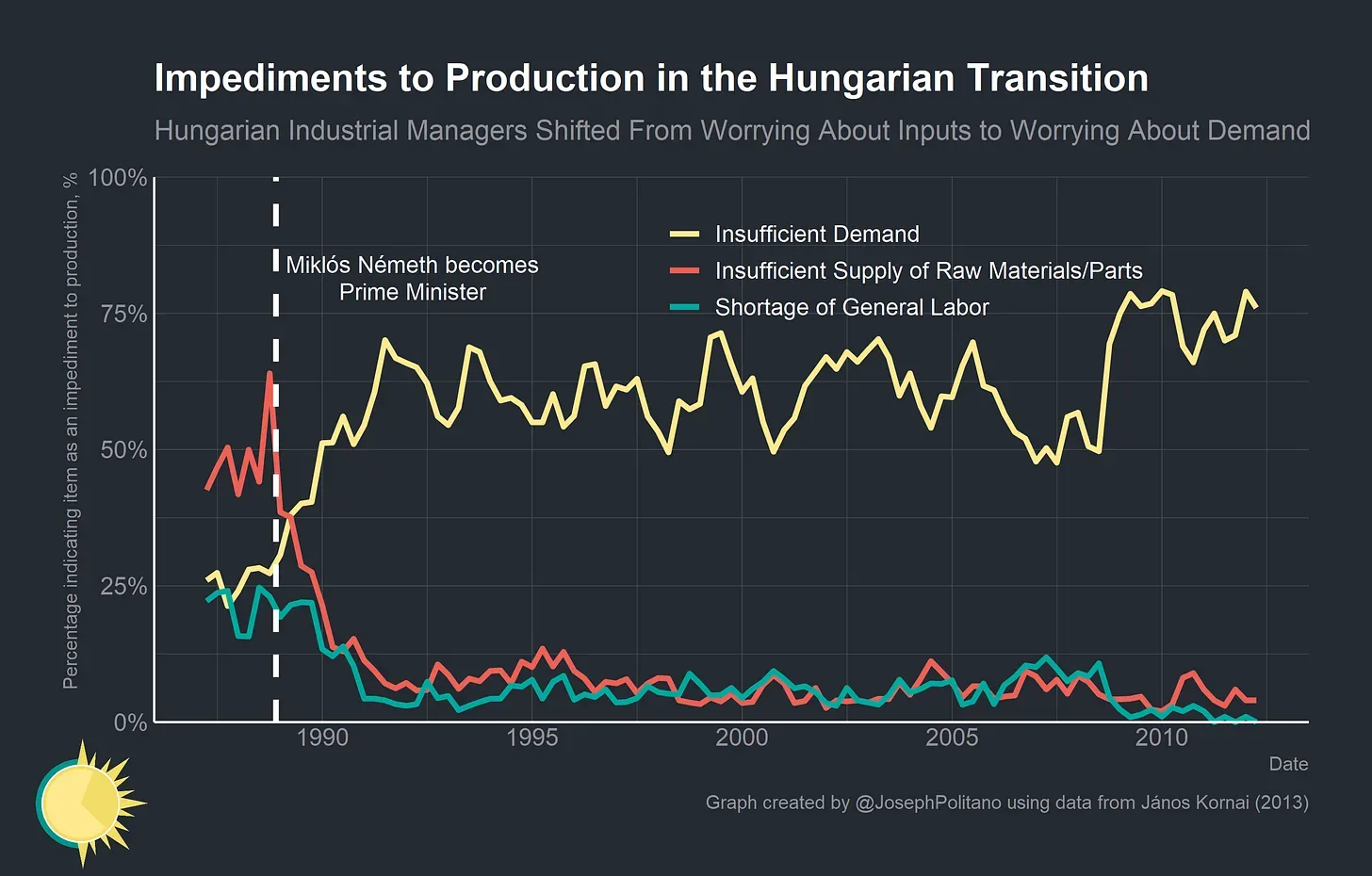Substack: Monetary Policy in a Shortage Economy


Joseph Politano -- Dec 24
--I have been thinking a lot about this chart, and about János Kornai.
Kornai was a Jewish-Hungarian economist who passed away last year at the age of 93. He was a teenager when fascists swept Europe and murdered his father and brother in the Holocaust. As a young adult, he joined the Communist party as a devoted believer and began studying the economies of the Easter Bloc. But he became disillusioned, and his most popular contribution to economics was an unorthodox rebuke of the economic system of the Soviet Union.
In Kornai’s mind, planned economies were fundamentally inferior to market economies—but not in the ways most Western economists thought. Conventional economic wisdom was that government-administered prices led to misallocation of resources, that a lack of inter-firm competition created monopolies that hampered competition, and that heavy redistribution ruined incentives to work, invest and produce. Kornai would retort that Eastern Bloc nations had differing degrees of inter-firm competition with the same stagnant growth, that from a purely technical perspective some Soviet firms were efficiently run, and that if prices were government-set, why were there always shortages and never surpluses? If planners were earnestly guessing wrong, you would expect them to guess a too-high price just as often as a too-low price, yet every manner of good or material seemed in short supply in the Soviet system. Why?
In Kornai’s mind, the answer was more systemic: state ownership of property and the factors of production fundamentally meant that companies were not bounded by profitability or other financial budget constraints. If a firm was unprofitable it was propped up by the state budget, and when no firm is constrained by profitability (and thereby demand) they become instead constrained by the amount of labor and materials they can grab. When everyone tries to grab as much labor and materials as possible, you end up with systemic shortages. By contrast, private ownership of property forces restricts the state’s ability to paper over losses and causes companies to be severely bounded by long-run profitability, so firms in market economies compete on finding demand for their outputs rather than on sourcing their inputs. The soft budget constraint of firms in planned economies leads to a resource-constrained shortage economy, and the hard budget constraint of firms in market economies leads to a demand-constrained surplus economy...
